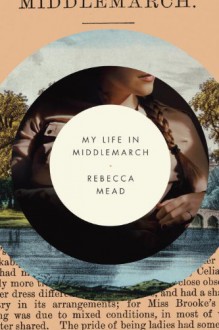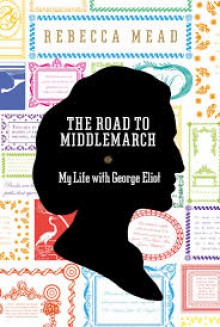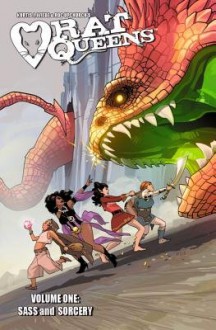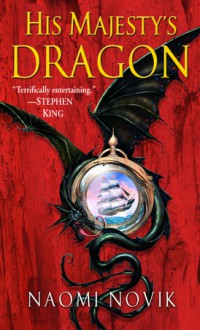
Rebecca Mead was a young woman in an English coastal town when she first read George Eliot's Middlemarch, regarded by many as the greatest English novel. After gaining admission to Oxford, and moving to the United States to become a journalist, through several love affairs, then marriage and family, Mead read and reread Middlemarch. The novel, which Virginia Woolf famously described as "one of the few English novels written for grown-up people," offered Mead something that modern life and literature did not. In this wise and revealing work of biography, reporting, and memoir, Rebecca Mead leads us into the life that the book made for her, as well as the many lives the novel has led since it was written. Employing a structure that deftly mirrors that of the novel, My Life in Middlemarch takes the themes of Eliot's masterpiece--the complexity of love, the meaning of marriage, the foundations of morality, and the drama of aspiration and failure--and brings them into our world. Offering both a fascinating reading of Eliot's biography and an exploration of the way aspects of Mead's life uncannily echo that of Eliot herself, My Life in Middlemarch is for every ardent lover of literature who cares about why we read books, and how they read us.
Amazon.com
Journalist Rebecca Mead uses My Life in Middlemarch not only as a platform to revisit George Eliot's classic novel, one that proved to be one of the pivotal reading experiences of Mead's teens and twenties, but also as a way to get better acquainted with the famous author herself. Because Mead provides a respectable amount of thoroughly researched material, though this work initially presents itself as a memoir inspired by a great writer, the biographical portions on Eliot are nothing to scoff at.
A book may not tell us exactly how to live our lives, but our own lives can teach us how to read a book. Now when I read the novel in the light of Eliot's life, and in the light of my own, I see her experience of unexpected family woven deep into the fabric of the novel -- not as part of the book's obvious pattern, but as part of its tensile strength..."The secret of our emotions never lies in the bare object, but in its subtle relation to our own past," Eliot wrote in Adam Bede. The bare object of a book -- of a story -- might also have a subtle relation to our own past. Identification with character is one way in which most ordinary readers do engage with a book, even if it is not where a reader's engagement ends. It is where part of the pleasure, and the urgency, of reading lies. It is one of the ways that a novel speaks to a reader, and becomes integrated into the reader's own imaginative life. Even the most sophisticated readers read novels in the light of their own experience, and in such recognition, sympathy may begin.
Born Mary Ann Evans (though she preferred going by "Marian" in her youth), George Eliot grew up in the rural region of southwest England. A whip-smart girl, she was already working her way through the works of Sir Walter Scott by the age of seven! Letters she penned during her teen years show a kind of forced maturity. Her opinions are markedly prudish, pious and judgmental. Surprisingly, she claimed to find dancing and novel reading silly frivolities. But Mead has a theory: she points out that at about the same age Eliot was when she wrote these bold opinions, Mead herself would also strongly preach on topics she actually knew little about -- sex, feminism, politics. Mead suspects that at this point in her life, Eliot was likely just a teen working through the standard growing up period of trying to figure out who you are exactly. Part of that means maybe sometimes making claims you might not necessarily whole-heartedly believe in, simply for the sake of trying the idea on for size.

Mead might be onto something, as she goes to show that later on in life Eliot swapped out her religious fervor for an equally intense passion for pseudosciences such as phrenology. Around this point in the book Mead also throws in an interesting bit of relevant trivia: turns out the very term "agnostic" was coined in 1869 by a friend of Eliot's! Eliot goes on to settle into what we'd now likely view as a common law marriage with George Henry Lewes. They weren't officially married (by church standards) but cohabited and behaved as an established married couple would, and many a neighbor gave the two a heavy dose of side-eye for it. Eliot & Lewes were both described as being quite ugly by the times' standards (even Eliot's friend, Russian novelist Ivan Turgenev claimed she "made him understand that it was possible to fall in love with a woman who was not pretty"), but haters be damned, they had the ultimate swoon-worthy bookish beginning to their romance when they met in a bookshop!
Henry James on Eliot (in a letter to his father): "She is magnificently ugly -- deliciously hideous. She has a low forehead, a dull grey eye, a vast pendulous nose, a huge mouth full of uneven teeth, and a chin and jaw bone qui n'en finissent pas (never-ending)...Now in this vast ugliness resides a most powerful beauty which, in a few very minutes steals forth and charms the mind, so that you may end as I ended, falling in love with her. Yes, behold me literally falling in love with this great horse-faced bluestocking."
Mead's words on Lewes: Lewes, who was two years Eliot's senior, was "the ugliest man in London" according to one member of his literary circle. He was slight in stature, with a receding jaw, protruding teeth that were concealed by a bushy mustache, and dark, intense, intelligent eyes. Jane Carlyle unkindly called him "The Ape," though her husband gave testimony that Lewes was "ingenious, brilliant, entertaining, highly gifted and accomplished." He was quick and clever. The novelist Eliza Lynn Linton, who was not fond of Lewes and thought him coarse and vulgar, nonetheless said that wherever he went there was "a patch of intellectual sunshine in the room." Lewes' bohemian manners and radical precepts were partly inspired by (Percy Bysse) Shelley, of whom as a young man he had described himself as a worshipper, and whose biography he had tried to write when he was just twenty, a project that foundered because he could not get the approval of Mary Shelley, the poet's widow.


Lewes & Eliot
Eliot hoped to find friendly support in her older, married half-sister Fanny Houghton, but Fanny -- having been displaced from her home as a child by their father when he took up with Eliot's mother -- ended up severing communication with Eliot altogether.
Also incorporated in this work are some extra booknerdish gems where Mead shares details on Eliot's literary friendships or at least run-ins with other greats of the era. Not only is there a discussion on Eliot's friendship (mostly through correspondence) with Harriet Beecher Stowe, but Mead also ties in connections to the works of Jane Austen and Charlotte Bronte. here and there throughout the whole book.
She (Eliot) was sometimes satirical, as in her secondhand report of Dickens' house on Tavistock Square: "Splendid library, of course, with soft carpet, couches, etc. such as become a sympathizer of the suffering classes," she wrote. "How can we sufficiently pity the needy unless we know fully the blessings of plenty?"
So yeah, not quite a full biography of Eliot, not entirely a traditional memoir for Mead, but somewhere in between. I will say it seemed to be closer to an Eliot bio than memoir, thought the title and synopsis would suggest something different. Mead DOES have her own personal connections in here, just maybe not as much as you might expect. Some reviews suggest this was a disappointment to a percentage of readers, but I myself wasn't hung up on that so much. Mead at least keeps things consistently interesting, which, for this book at least, was good enough for me.


 Log in with Facebook
Log in with Facebook 





















